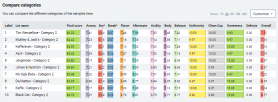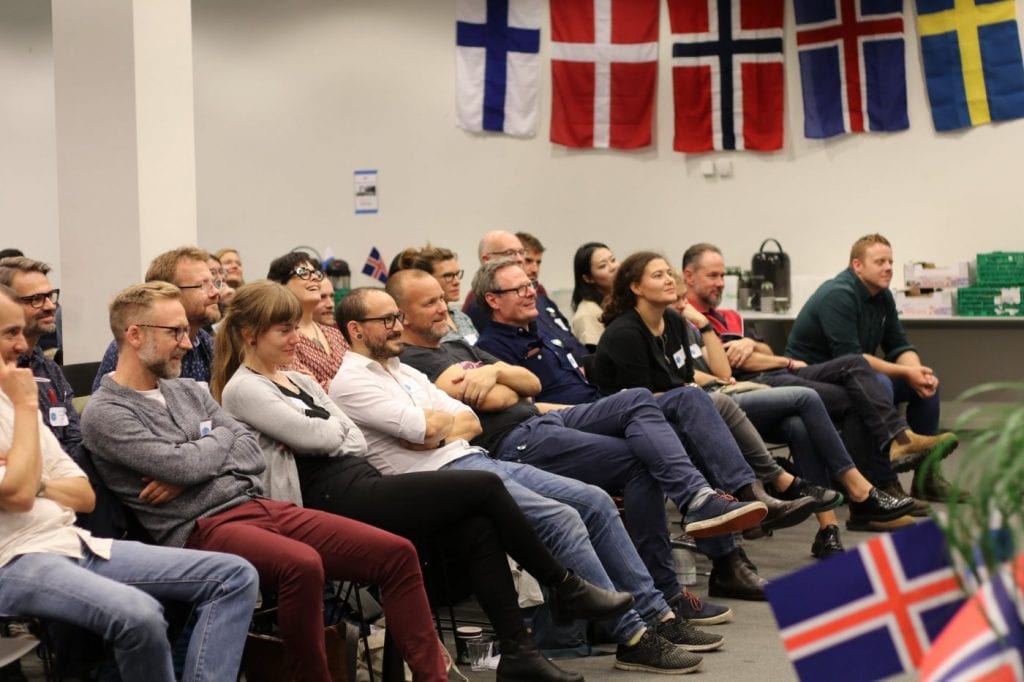Nordic Roaster Forum Oslo 2020 – CANCELLED 17 Mar 2020 5:27 AM (4 years ago)
Dear roasters,
Due to the current Covid-19 situation we have canceled Nordic Roaster Forum Oslo 2020.
Hopefully we will be able to put up an event in 2021.
Results from Nordic Roaster Competition 2019 18 Nov 2019 11:21 PM (5 years ago)
Overall Winner: Tim Wendelboe
Category 1: Provided Coffee Winner – Tim Wendelboe
Category 2: Leaf Rust Resistant Hybrid Cultivars Winner – Tim Wendelboe
Category 2 Participant Coffees
April Coffee Roasters
Farm: El Paraiso
Origin: Colombia
MASL: 1.960 meters
Region: Piendamó, Cauca, Colombia
Producer: Diego Bermudez
Process: Anaerobic
Cultivar: Castillo
Jørgensen Kaffebrenneri
Farm: San Isidro
Origin: Colombia
Region: San Isidro, Huila, Colombia
Producer: Alfredo Baos
Process: Washed
Cultivar: Tabi
Johan & Nyström
Farm: La Benedicion
Producer: Luis Alberto Balladerez
Origin: Nueva Segovia, Nicaragua
Process: NaturalCultivar: H1
Kaffa Oslo
Farm: Flor de la Peña
Producer: Luis Delcid
Origin: Santa Barbara, Honduras
Process: Washed
Cultivar: Parainema
Kafferäven
Farm / producer: Reina Elizabeth
Origin: San Luis of Grecias, West Valley, Costa Rica
Process: Black Honey
Cultivar: Milenio F1
Tim Wendelboe
Farm: Cielito Lindo
Origin: El Cielito, Santa Barbara, HondurasProducer: Jobneel Caceres Dios & Extreberto Caceres GutierrezProcess: WashedCultivar: Ihcafe 90 – Catimor
Black Cat
Farm: Puerto Alegre
Origin: Pijao, Quindio, Colombia
Producer: Jairo & Cesar Lopez
Process: Natural
Cultivar: Castillo
Muttley & Jack’s
Farm: Liquidambar
Origin: Pozo Negro, Intibuca, Honduras
Producer: Guadalupe Rodriguez
Process: Fully Washed
Cultivar:Lempira
My Ugly Baby
Farm: Liquidambar
Origin: Pozo Negro, Intibuca, Honduras
Producer: Guadalupe Rodriguez
Process: Fully Washed
Cultivar:Lempira
Da Matteo
Producer: Coopetarrazu
Origin: San Marcos, Terrazú, Costa Rica
Process: Natural
Cultivar: F1 Centroamericano
Important announcement for the Nordic Roaster Competition 5 Sep 2019 11:24 PM (5 years ago)
In September 2019 we were made aware that five of the cultivars listed as accepted cultivars in the competition category «Leaf rust resistant hybrid cultivars» are in fact not resistant.
The cultivars that are no longer considered resistant are Costa Rica 95, Ihcafe 90, Lempira, (Susceptible) Batian and Ruiru 11 (Tolerant) .
The Nordic Roaster committee based the list of resistant cultivars on the information published on the World Coffee Research website and the SCA website when the competition rules were made in December 2018. Information on these cultivars have later been changed regarding their resistance to leaf rust. Because the rules were published for the competition in February 2019 and the roasters have based their sourcing on that information, the Nordic Roaster Committee decided it was too late to change the rules only one month prior to the competition as this would not leave enough time for the roasters to source new coffee if they were competing with one of the 5 cultivars mentioned above. The committee will therefore allow for these 5 cultivars to be entered in the competition.
Moe importantly, if one of these cultivars was used by a winner of the category it is important to note that we do not recommend farmers planting these varieties unless they are aware that they are susceptible or tolerant and not resistant to leaf rust.
Call for Abstracts: Nordic Roaster Forum 2019, October 4th & 5th, Oslo 3 Jun 2019 2:20 AM (5 years ago)
This year’s Nordic Roaster Forum theme comes off the heels of 2018’s forum on sustainability. As we learned, sustainability is a wide ranging and complex topic with far-reaching consequences. Each of us are contemplating what we can do to minimize our impact on the environment, while simultaneously creating more sustainable models for running our coffee businesses.
The objective for this year’s forum is to explore ‘climate change adaptation in coffee’. How are coffee professionals across the coffee supply chain addressing and tackling climate change? If you are someone that has a working approach to, or you are researching this topic, we would love to hear from you.
Please submit a 250-500 word abstract for a 30-minute oral presentation about your work on climate change adaptation in coffee. Send your submission to melanie.leeson@gmail.com by June 30th, 2019.
In line with this year’s forum theme, the Nordic Roaster Competition coffees will be leaf rust resistant hybrid cultivars. We are very much looking forward to both cupping the competitors’ roast approaches to these cultivars, along with discussing our respective perceptions about the quality and cup profiles of hybrids.
NRF 2019 – Speakers 3 Jun 2019 2:14 AM (5 years ago)
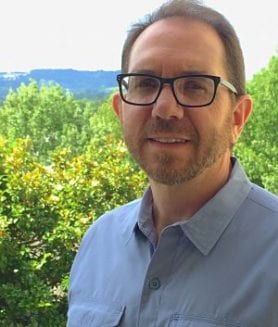 Greg Meenahan is the Partnership Director for World Coffee Research and is coordinating the industry’s global, financial support for this pre-competitive agricultural research and development effort. His communications and fundraising career has been focused on removing barriers to human potential and providing the tools people need to achieve economic stability. Because some of the most vulnerable people on the planet grow one of the most vulnerable crops on the planet, it became clear that agricultural research and development could lift millions out of poverty and could prevent many from falling into it. In his keynote presentation, Boosting Farm Profitability at a Time of Record Low Prices, Greg talks about global coffee prices, which are at their lowest levels in more than a decade, and how this endangers coffee producers and entire origins. At current price and productivity levels, many coffee grower incomes do not meet their basic needs.
Greg Meenahan is the Partnership Director for World Coffee Research and is coordinating the industry’s global, financial support for this pre-competitive agricultural research and development effort. His communications and fundraising career has been focused on removing barriers to human potential and providing the tools people need to achieve economic stability. Because some of the most vulnerable people on the planet grow one of the most vulnerable crops on the planet, it became clear that agricultural research and development could lift millions out of poverty and could prevent many from falling into it. In his keynote presentation, Boosting Farm Profitability at a Time of Record Low Prices, Greg talks about global coffee prices, which are at their lowest levels in more than a decade, and how this endangers coffee producers and entire origins. At current price and productivity levels, many coffee grower incomes do not meet their basic needs.
While most attention has been focused on price mechanisms and premiums, the best lever for improving farm profitability is to increase yields, quality and farming profitability. In this lecture you will learn how F1 hybrids, a new class of coffee variety, and globally oriented profitability research will empower producers with the tools they need to be resilient in down markets, and highly profitable in up markets.
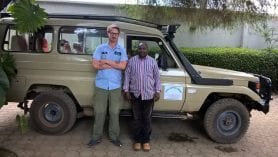 Dr. Anders Nielsen is a researcher at the Centre for Ecological and Evolutionary Synthesis at the Department of Biosciences at the University of Oslo. For many years his research has centred on questions related to plant-pollinator interactions, i.e. how insects contribute to plant reproduction. Although he started out working mostly in wild ecosystems he has, over the last years, also done research on crop pollination, both in Norway and abroad. He finds the interaction between agriculture and biodiversity particularly intriguing as pollination, an ecosystem service, might benefit production and thereby give strong arguments for biodiversity conservation in agricultural settings. Climate change has the potential to affect plant-pollinator interactions in subtle ways both in natural and agricultural settings. Coffee is a valuable commodity especially in third world countries where it contributes to local economies and can have huge impacts on the livelihood of local people. Since bees pollinate coffee, local biodiversity can also contribute to improving yields. Anders’ research is about better understanding what factors affect coffee pollination, what agricultural practices that might harm or benefit pollinator communities, and to what extent pollination is limiting coffee yields in different areas.
Dr. Anders Nielsen is a researcher at the Centre for Ecological and Evolutionary Synthesis at the Department of Biosciences at the University of Oslo. For many years his research has centred on questions related to plant-pollinator interactions, i.e. how insects contribute to plant reproduction. Although he started out working mostly in wild ecosystems he has, over the last years, also done research on crop pollination, both in Norway and abroad. He finds the interaction between agriculture and biodiversity particularly intriguing as pollination, an ecosystem service, might benefit production and thereby give strong arguments for biodiversity conservation in agricultural settings. Climate change has the potential to affect plant-pollinator interactions in subtle ways both in natural and agricultural settings. Coffee is a valuable commodity especially in third world countries where it contributes to local economies and can have huge impacts on the livelihood of local people. Since bees pollinate coffee, local biodiversity can also contribute to improving yields. Anders’ research is about better understanding what factors affect coffee pollination, what agricultural practices that might harm or benefit pollinator communities, and to what extent pollination is limiting coffee yields in different areas.
His Nordic Roaster Forum presentation is “Coffee Pollination – How Biodiversity Might Benefit Coffee Yields”:
Plant-pollinator interactions are ubiquitous in nature, as almost 90% of all flowering plants to some degree benefit from pollinators. Over the last years the positive effects of pollinators also to a huge variety of crops has also become evident. Coffee is an insect pollinated plant where Coffea canephora (Robusta) is 100% dependent on pollination for fruit production, while studies have shown that Coffea arabica (Highland coffee) have a yield decrease of 15% to 50% when bees are prevented from visiting their flowers. Through my work on crop pollination in Tanzania, I have learned that there is a strong focus on irrigation, fertilizer application and pesticide use among farmers, to improve yields. However, we have found that the potential for increasing yields in watermelon does not lay in any of these agricultural inputs, but solely on better pollination services. I will argue that this might also be the case in coffee production systems, and that measures to sustain local bee diversity might not only benefit biodiversity conservation, but also coffee production itself. Climate change might have strong effects on plant-pollinator interactions and I will discuss how this might affect coffee pollination in particular.
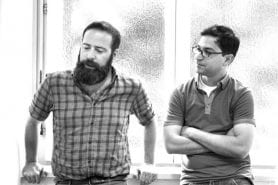 Gerardo Anzaldúa is a Fellow at the Ecologic Institute in Berlin. He leads the institute’s consultancy work on business development and open innovation, supporting environmental technology firms on product- and business strategy development. On the research front, he investigates the social and economic aspects of European water policy and the operationalization of the ecosystem services approach. As co-founder of coffee, metrics and analytics, Gerardo has contributed to the design of the spin-off’s operational processes, market research and business strategy development.
Gerardo Anzaldúa is a Fellow at the Ecologic Institute in Berlin. He leads the institute’s consultancy work on business development and open innovation, supporting environmental technology firms on product- and business strategy development. On the research front, he investigates the social and economic aspects of European water policy and the operationalization of the ecosystem services approach. As co-founder of coffee, metrics and analytics, Gerardo has contributed to the design of the spin-off’s operational processes, market research and business strategy development.
Francisco has been team manager of a bioanalytics and spectroscopy unit within the group of Prof. Dr. Peter Hildebrandt at the Technische Universiät Berlin. He is also an experienced bio-data and machine learning scientist. For more than three years he has been working in understanding structure and degradation mechanisms in coffee and coffee by-products. As cofounder of coma, he has developed the scientific and technological approach for preventing aroma and flavor aging as well as building up and foster the spinoffs international network (specialty-coffee farmers, scientists, exporters, importers, traders, roasters and coffee shops).
Even when stored under adequate conditions, aging of green coffee results in the decline of its original quality. For producers, exporters, importers and traders of specialty coffee this can represent significant losses, given the close price-cupping score interrelation. General knowledge within the coffee community indicates that the rate at which this negative progression occurs differs among varieties and processing methods. To explore and address this, a spin-off from the TU Berlin called coffee, metrics & analytics (coma) developed a novel pressure treatment to preserve flavor and aromatic compounds over longer periods. In 2018 coma kicked off an experiment comparing the rate of decline in the cupping score of samples from two lots: a Tanzanian fully washed Kent variety and an Ethiopian Heirloom natural. Coma conducts the experiment in collaboration with two specialty roasteries in Germany and one specialty trader in Norway. For each variety, half of the samples were subjected to the new treatment while half remained unprocessed. All samples are stored under business-as-usual conditions at the roasters’ and sourcer’s premises, and are cupped at regular intervals to evaluate the evolution of cupping score and biophysical components. This lecture & cupping will introduce the new pressure treatment and present preliminary experiment results.
Francisco and Gerardo’s presentation is titled “Interrupting the Biological Process of Aging in Green Coffee”.
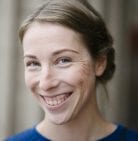 Milda Rosenberg is a researcher at the University of Oslo, studying climate change adaptation in coffee. People with a vision others call unrealistic fascinate Milda, which is why her research follows them through the process of turning their vision into reality against all odds. Milda approaches climate change as one of the many issues stakeholders deal with, and facilitates a change process that incorporates sustainability as one of the key agendas. She thrives on harnessing the potential of human capacity to change. The goal is to make change an efficient and creative process.
Milda Rosenberg is a researcher at the University of Oslo, studying climate change adaptation in coffee. People with a vision others call unrealistic fascinate Milda, which is why her research follows them through the process of turning their vision into reality against all odds. Milda approaches climate change as one of the many issues stakeholders deal with, and facilitates a change process that incorporates sustainability as one of the key agendas. She thrives on harnessing the potential of human capacity to change. The goal is to make change an efficient and creative process.
The title of Milda’s presentation is “What is my role in climate change adaptation in coffee?” More info to come!
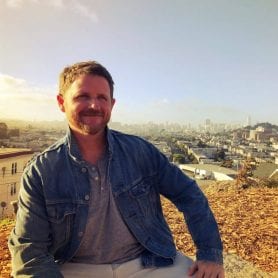 Benjamin Myers is a graduate of UC Berkeley where he studied Philosophy and Systems Ecology. After graduating Berkeley, Ben spent two years working in rural Russia at an Agricultural Technical College through the Peace Corps. In 2005, in conjunction with the UGA Institute of Ecology, Benjamin founded a coffee business called 1000 Faces Coffee. A self-created first coffee job, he worked on a forward thinking agroforestry project in the Choco-Andean Corridor in Northern Ecuador by providing a direct trade partner for the shade grown specialty coffee the growers produced. Since 2014, Ben has served as the President of the Chain Collaborative. He is a US based consultant with 49th Parallel Coffee Roasters and also works as the Growers Program Manager with Frinj Coffee. Benjamin has enjoyed collaborations with: The Land Institute, the World Institute of Slowness, Roast Magazine, and The Coffee Quality Institute during his time in the coffee industry.
Benjamin Myers is a graduate of UC Berkeley where he studied Philosophy and Systems Ecology. After graduating Berkeley, Ben spent two years working in rural Russia at an Agricultural Technical College through the Peace Corps. In 2005, in conjunction with the UGA Institute of Ecology, Benjamin founded a coffee business called 1000 Faces Coffee. A self-created first coffee job, he worked on a forward thinking agroforestry project in the Choco-Andean Corridor in Northern Ecuador by providing a direct trade partner for the shade grown specialty coffee the growers produced. Since 2014, Ben has served as the President of the Chain Collaborative. He is a US based consultant with 49th Parallel Coffee Roasters and also works as the Growers Program Manager with Frinj Coffee. Benjamin has enjoyed collaborations with: The Land Institute, the World Institute of Slowness, Roast Magazine, and The Coffee Quality Institute during his time in the coffee industry.
Benjamin’s presentation is about Frinj Coffee’s creation of a new coffee producing region in California. Theirs is a farmer-first approach and utilizes new plant material in collaboration with UC Davis & Front Range Biosciences. The Frinj Coffee project seeks to build a coffee future in relationship with climate change. With 40 farms, Frinj has moved from developing one plant to developing an industry. As the Growers Program Manager, Benjamin’s role is to help develop Frinj’s new farms.
In creating a new coffee origin, Frinj is collaborating with a cross section of industries to unlock new potentialities. At 18 degrees north of the tropics, in the middle of a coastline riddled with renowned agricultural universities, technology hubs, and our wine industry. These outside perspectives have shaped Frinj’s approach to coffee.
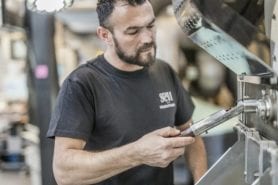 Simo Kristidhi has been a roaster at Solberg & Hansen since 2004, taking on the position of Head Roaster in 2008. During his 16 years of roasting at S&H, Simo says he has had the opportunity to work with some of the worlds greatest coffee professionals. Something that motivated him to enter the World Coffee Roasting Challenge in Vienna in 2012, which he won. The WCRC was a precursor to the World Roasting Championship.
Simo Kristidhi has been a roaster at Solberg & Hansen since 2004, taking on the position of Head Roaster in 2008. During his 16 years of roasting at S&H, Simo says he has had the opportunity to work with some of the worlds greatest coffee professionals. Something that motivated him to enter the World Coffee Roasting Challenge in Vienna in 2012, which he won. The WCRC was a precursor to the World Roasting Championship.
After this competition, Simo was determined to organise the first ever Norwegian Roasting Championship to both highlight the roasting profession and showcase the science behind it. Six years on, the competition has 25 participating countries, each winner becoming an ambassador for the coffee roasting profession. In Simo’s opinion, interest in roasting, and the level of skill behind it has never been as high as it is now, in part due to the attention roasters receive through competition.
Simo is the current champion of the Norwegian Roasting Championship—a title he has held since 2017. In addition to his top-place win in Vienna in 2012, he placed 8th and 6th at the World Roasting Championships in 2017 & 2018, respectively.
His presentation at Nordic Roaster Forum is about his experiences as a roaster competitor, “Thoughts and Strategies Prior to Roasting Competitions”. To Simo, participating in competitions is many things: a great way for roasters to calibrate themselves and sharpen their skills, a means to gain more roasting experience and knowledge, as well as create great (lifelong) friendships amongst peers.
 Eva Eriksson has worked for the Swedish coffee roaster Löfbergs for more than 30 years. She is now the Quality and Sustainability Director, a position where she oversees both taste and quality, and takes responsibility for the people and environments where Löfbergs does its sourcing and production.
Eva Eriksson has worked for the Swedish coffee roaster Löfbergs for more than 30 years. She is now the Quality and Sustainability Director, a position where she oversees both taste and quality, and takes responsibility for the people and environments where Löfbergs does its sourcing and production.
During her years at Löfbergs, the company has become one of the world’s largest suppliers of organic and Fairtrade labelled coffee and has invited more than 75,000 small-scale coffee farmers to its development projects. Back home, Löfbergs has constantly reduced its climate impact despite increasing its production and it has also been a frontrunner within the area of packaging waste management. Löfbergs was the first coffee business in Europe to remove aluminium from its packaging 25 years ago and has now started to phase out fossil plastics, replacing it with plastic from renewable sources.
Eva is still cupping coffee daily at Löfbergs as she has always been doing over the years. She has cupped approximately 500,000 cups in total and still enjoys every sip.
The working title for her coming lecture is “Responsibility from bean to cup”. More info to come…
Nordic Roaster Forum 2019 – Program 3 Jun 2019 1:40 AM (5 years ago)
This year’s Nordic Roaster Forum theme comes off the heels of 2018’s forum on sustainability. As we learned, sustainability is a wide ranging and complex topic with far-reaching consequences. Each of us are contemplating what we can do to minimize our impact on the environment, while simultaneously creating more sustainable models for running our coffee businesses.
The objective for this year’s forum is to explore ‘climate change adaptation in coffee’. How are coffee professionals across the coffee supply chain addressing and tackling climate change?
In line with this year’s forum theme, the Nordic Roaster Competition coffees will be leaf rust resistant hybrid cultivars. We are very much looking forward to both cupping the competitors’ roast approaches to these cultivars, along with discussing our respective perceptions about the quality and cup profiles of hybrids.
Thursday October 3rd: (TW Lab, Tøyengata 29C, 0578)
| 12:00 – onward | TW open roastery for roastery setup questions, etc. |
| 12:00 – 13:30 | Algrano Discovery Cupping |
| 13:45 – 14:15 | IKAWA workshop: Taste of Harvest Challenge |
| 14:30 – 16:00 | Belco Presentation & Cupping |
| 16:00 – 19:00 | Meet & Greet – Hosted by Roest & TW |
Friday October 4th
Venues:
Educational Program & Cuppings: Bruket, Schweigaards gate 34C, 0191
Dinner & Wine: Vinoteket, Henrik Ibsensgate 60A, 0255
| 08:00 | Arrivals, Coffee & Pastries – Hosted by S&H and Kaffebrenneriet |
| 08:30 | Welcome & NRF Program Intro – Erik Rosendahl |
| 08:45 | Cropster Introduction: Tim Wendelboe |
| 09:00 | Cupping calibration for all attendees (2 rounds) – Morten Wennersgaard (Nordic Approach) |
| 10:30 | Keynote presentation: Greg Meenahan – Boosting Farm Profitability at a Time of Record Low Prices |
| 11:15 | Nordic Roaster Competition Cupping |
| 12:15 | Lunch |
| 13:15 | Lecture 1: Anders Nielsen – Coffee pollination – How Biodiversity Might Benefit Coffee Yields (University of Oslo) |
| 13:45 | Anders Nielsen: Q&A |
| 13:50 | Lecture 2: Francisco Velazquez (coma) – Interrupting the Biological Process of Aging in Green Coffee |
| 14:20 | Cupping: Interrupting the Biological Process of Aging in Green Coffee |
| 15:05 | Francisco Velazquez: Q&A |
| 15:10 | Coffee Break – Hosted by S&H |
| 15:25 | Lecture 3: Eva Eriksson (Löfbergs)- Responsibility from bean to cup |
| 15:55 | Eva Eriksson: Q&A |
| 16:00 | End of Program |
| 19:00 | Dinner & Wine – Vinoteket, Henrik Ibsensgate 60A – Hosted by S&H |
Saturday October 5th
Venues:
Educational Program & Cuppings: Bruket, Schweigaards gate 34C, 0191
Competition Announcement & Dinner: Sentralen, Øvre Slottsgate 3, 0157
| 08:30 | Arrivals, Coffee & Pastries – Hosted by S&H and Kaffebrenneriet |
| 09:00 | Lecture 4: Milda Rosenberg (University of Oslo) – What is my role in climate change adaptation in coffee? |
| 09:30 | Milda Rosenberg: Q&A |
| 09:45 | Nordic Roaster Competition Cupping |
| 10:45 | Lecture 5: Jacques Chambrillon & Fufa Eticha (Belco) – How to approach an agro-system in Ethiopian coffee supply chains |
| 11:15 | Cupping & Honey Tasting: How to approach an agro-system in Ethiopian coffee supply chains |
| 12:15 | Lunch |
| 13:15 | Lecture 6: Simo Kristidhi (Solberg&Hansen) – Preparing for Competition |
| 14:00 | Cupping: Preparing for Competition |
| 15:00 | Simo Kristidhi: Q&A |
| 15:05 | Panel Discussion: TBA |
| 16:00 | End of Program |
| 19:00 | Party, food and Nordic Roaster announcement at Sentralen. Top-3 winners from each category present their approaches |
Sunday October 6th: (NA HQ, Tøyengata 29c, 0578)
| 11:00 | Open Board Meeting |
Nordic Roaster 2019 Competition – Participants. 3 Jun 2019 12:58 AM (5 years ago)
Dear Roasters.
This year´s 10 roasters in the Nordic Roaster Competition are following.
| Company represented |
|---|
| Jørgensen Kaffebrenneri |
| Tim Wendelboe AS |
| da Matteo |
| My Ugly Baby |
| Johan & Nyström Kafferostare & Tehandlare AB |
| Black Cat AS |
| Kaffa |
| Muttley & Jacks´s |
| April |
| Kafferäven |
NB ! : When we reach 10 registered participants, following registered will be notified if they are on the waiting list.
Nordic Roaster Competition Rules 2019 28 Feb 2019 12:15 AM (5 years ago)
The 2019 Nordic Roaster competition will be held at the Nordic Roaster event in Oslo, Norway on the 3rd to the 5th of October.
The aim is to reward the best overall roaster with the title “Nordic Roaster 2019”. The title is for the winner to use during its reigning year and can be used only by the winner.
Application process:
The competition is open only to 10 roasters.
Any roaster that is registered as a business and who is selling roasted coffee roasted by themselves, and is located within the Nordic countries, can apply for participation. In Other words, the competition is for roasters located in the Nordic countries only.
The competition fee is € 780,- (euro) and includes one attendee ticket to the Nordic Roaster Forum.
Since it is a Nordic Roaster Competition only applying roasters located in the Nordic countries will be granted a spot in the competition.
(The Nordic countries are defined as Denmark, Finland, Iceland, Norway, Sweden, Åland Islands, the Faroe Islands and Greenland.)
The first who pay the competition fee will be the first in line to enter the competition.
Competition fee will be refunded to those that has paid, and not having their application granted.
All applications will be treated by the “first come, first serve” principal.
The Competition
The 2019 Nordic Roaster competition will be held at the Nordic Roaster event on on the 3rd to the 5th of October in Oslo, Norway.
Each competing roastery must have one person present during the evaluation of the coffees on both evaluation days and also at the award ceremony on Saturday the 5th of October.
There will be two (2) categories in the competition:
- Provided coffee
In this category each roaster will be given 30 kilos of coffee by the Nordic Roaster Forum coffee sponsor. All roasters will be given the same coffee and the coffee will be sent to the roaster in advance prior to the competition. We are aiming to send out the coffees at latest in early September. Information on this coffee will also be given when the coffees are sent out.
All competing roasters will have to roast the provided coffee in line with their preference and style on their roaster of choice. Each roaster must submit 10 kilos of roasted coffee beans for the competition packed in 100g bags.
- Leaf rust resistant hybrid cultivars
In this category each roaster must submit 10 kg of roasted coffee beans of any resistant hybrid cultivar. The coffee can be processed in any way. For example washed, natural processed coffees, pulped natural or honey processed coffees where the coffee has been dried in contact with mucilage or pulp are all allowed. Additional flavour additives are not allowed. The coffee can come from any origin but must be a single origin coffee. However it can be a blend of coffees from smallholder farmers within one country for example a cooperative coffee. Each roaster must submit 10 kilos of roasted coffee beans for the competition packed in 100g bags.
See below for a list of allowed resistant hybrid cultivars. If a roaster wants to compete with a resistant hybrid cultivar that is not on the list, please contact jdn@vaa.dk with the name and origin of the cultivar to apply for approval.
Submitting coffees:
All competing roasters must submit 10 kilos of coffee in each category all packed in 100 gram bags. The coffees in both categories must be roasted by the competing roaster and the coffee from the Leaf rust resistant hybrid cultivar category must be available for sale from the roastery at the moment or after the competition.
The coffee has to be delivered to Jens Nørgaard at the event venue in Oslo, Norway, before 17:00am on Thursday the 3rd of October 2019.
The roaster shall pack all the coffee in 100g bags and must mark each coffee bag with the following information:
- Name of the roastery and the city and country it is located in.
- Name of the coffee (Farm name, cooperative name, etc)
- Country of origin and the area it is from within the country of origin.
- Name of the cultivar (variety)
- Number of competition category (1 or 2)
This information also has to be sent to mailto:jdn@vaa.dk before September 27th.
Evaluation:
The coffees will be evaluated by the attendees at the 2019 Nordic Roaster Forum.
The coffees will be evaluated by the cup-tasting method and will be tasted blind, meaning the attendees will not know which coffees they are tasting and from which roaster they were submitted.
There will be one cupping on the Friday and one on the Saturday.
The cupping brewing ratio will be 60 grams to 1000 grams of water. The extraction % will be set by the Nordic Roaster Forum organizing committee according to the grinder used. As an example we have previously used a Mahlkönig EK 43 grinder and the cupping strength was approximately TDS 1,1 – 1,2 yielding an extraction % of 19,5 – 21,5.
Bare in mind that all coffees will extract slightly different. We aim for an average good extraction for all coffees.
The water will be filtered Oslo City water.
The normal mineral composition of the Oslo water is about:
GH: 2,5
KH: 2,0
pH: 7-8
TDS: 55-100
All attendees will submit one score sheet for each category.
The score sheets to be used is the same as the SCA cupping forms that is basing their scoring scale on 0 to 100 where 100 points is the best. The cropster cupping app will be used to collect all scores in order to avoid mistakes and provide transparent and accurate scoring.
After each round of cupping, the attendee will submit their scores via the cropster cupping app. The auditors will double check that all scores have been submitted correctly before the final calculations are approved and published.
The roasters will be ranked by each coffee’s average score in each category. The overall winner is calculated by calculating the overall average score. This is done by adding the two scores corresponding to the roasters submitted coffees in each category together whereby the sum is divided on two. The best possible score for one roaster can be 100 points.
The roaster that gets the best total score will be rewarded the title “Nordic Roaster 2019”.
In case of a split decision, the one roaster with the most total top scores will win.
There can only be one winner of the “Nordic Roaster 2018” title however the winner of each category will also be announced. The full results will be published on the Nordicbaristacup.com web site. The winner will get the Nordic Roaster trophy to keep until the next Nordic roaster competition is held.
The winner will be announced on Saturday the 5th of October during the Nordic roaster dinner where one representative from each competing roaster must be present.
Criterias for submitting valid scores
The main criterias in order to be an evaluator in each round is that 10 scores must be submitted and they all need to be above 80 points.
- If an evaluator has only submitted 9 scores or less above 80 points in one category the evaluator is not eligible to score the entire round and all her / his scores are removed from the round. The evaluator can however score in the second round / category because the average score is calculated and each roaster will have the same amount of scores in each round. In other words, evaluators who have scored one or more coffees under 80 pionts will be removed from the final evalutaion of all coffees within the category / round.
- Evaluators who have submitted less than 10 scores will also be removed from the final evaluation of all coffees within the category / round.
- If a score is submitted after the cupping session is closed, the score will not be counted in the competition. This is because we will announce the scores from each round after each cupping session.
Resistant varieties for NRC 2019:
- Acaia
- Anacafe 14 (Catimor)
- Arla
- Ateng
- Batian
- Bogor Prada
- Castillo
- Catiga MG2
- Catugua
- Catimor
- Catimor 129 (Cat129, Nyika)
- Catisic (Catimor)
- Catrenic
- Catucai
- Centroamericano (H1)
- Costa Rica 95 / CR95 (Catimor)
- Cuscatleco (Sarchimor)
- Devamachy
- Iapar 59 (Sarchimor)
- Icafe 95
- Icatú
- Ihcafe 90 (Catimor)
- Ipar 103
- Lempira
- Limani (Sarchimor)
- Maracatu
- Marsellesa (Sarchimor)
- Milenio (h10)
- Mundo Maya (EC16)
- Obata (Sarchimor)
- Oro Azteca (Catimor)
- Parainema (Sarchimor)
- Paraiso
- Pop 3303/21
- RAB C15
- Robusta
- Ruiru 11
- Sarchimor
- Selection 9 (Sln9)
- Starmaya
- Tabi
- Tupi
- T5175 (Catimor)
- T5296 (Sarchimor)
- T8667 (Catimor)
- If a roaster wants to compete with a resistant hybrid cultivar that is not on the list, please contact jdn@vaa.dk with the name and origin of the cultivar to apply for approval.
Nordic Roaster Competition 2019 Tickets Available Now 12 Dec 2018 11:14 PM (6 years ago)
Nordic Roaster Forum 2019 will be held in Oslo, Norway on 4th of October to 5th of October.
Secure Your attendance in the competition now right here
Nordic Roaster Forum 2019 Tickets Available Now 12 Dec 2018 9:05 PM (6 years ago)
Nordic Roaster Forum 2019 will be held in Oslo, Norway on 4th of October to 5th of October.
Secure Your attendance now right here

